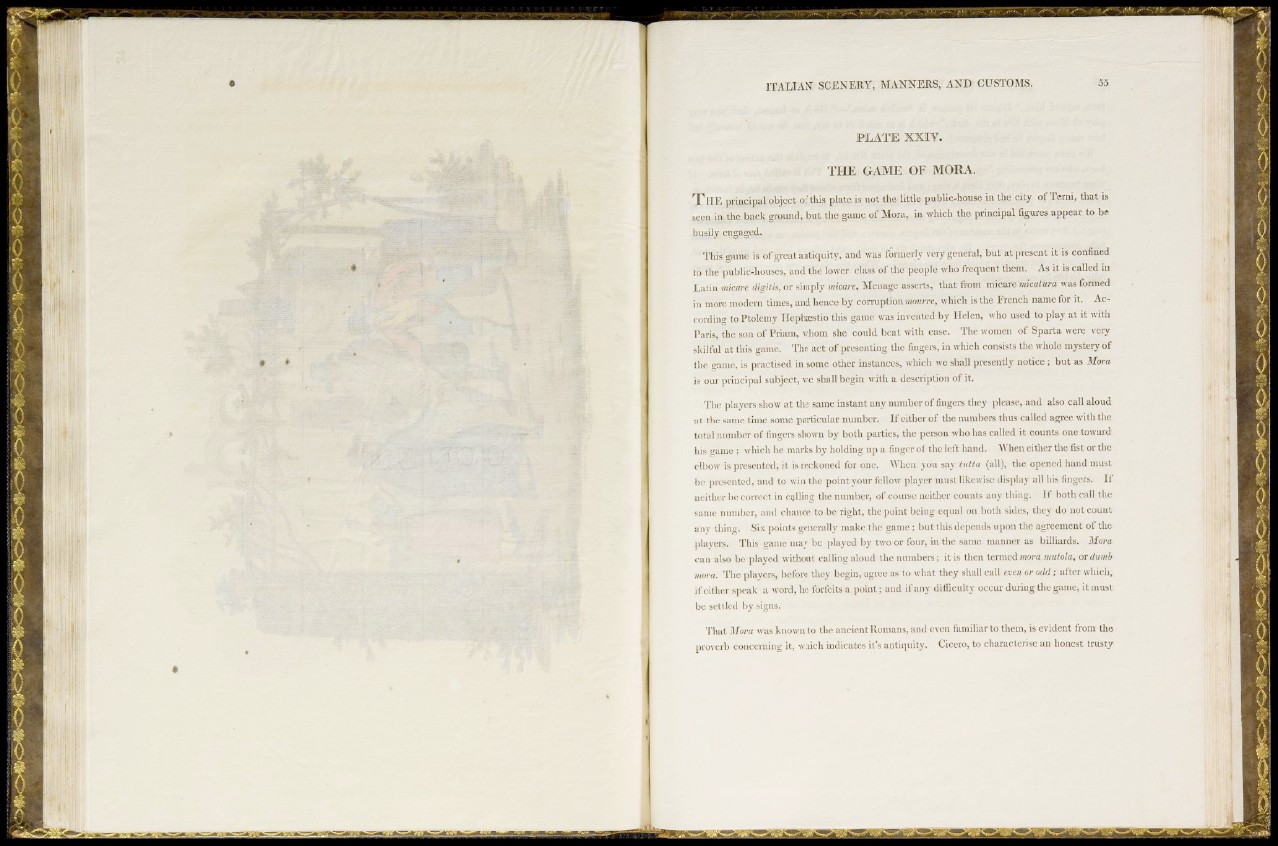
JTALIxiN SCENERY, MANNERS , AND CUSTOMS.
PILATE XXIV.
THE GAME OF MORA.
T h e principal object of this plate is uot the little public-house in the city of Temi, that is
seen in the back ground, but the game of A£ora, in which the principal figures appear to be
busily engaged.
This game is of greatantiquity, and was formerly very general, but at present it is confined
to the public-houses, and the lower class of the people who frequent them. As it is called in
Latin micarc digitis, or simply mkare, I t enage asserts, that from micare micatura was formed
in more modern times, and hence by corruption mourre, which is the French name for it. According
to Ptolemy Ilephajstio this game was invented by Helen, who used to play at it with
I'aris, the son of Priam, whom she could beat with ease. The women of Sparta were very
skilful at this game. The act of presenting the fmgcrs, in which consists the whole mystery of
the game, is practised in some other instances, which we shall presently notice; but as Mora
is our principal subject, we shall begin with a description of it.
The players show at the same instant any number of lingers they please, and also call aloud
at the same time some particular number. If either of the numbers thus called agree with the
total number of fingers shown by both parties, the person who has called it counts one toward
his game ; which he marks by holding up a finger of the left hand. When either the fist or the
elbow is presented, it is reckoned for one. "When you say tf/Uc/ (all), the opened hand must
be presented, and to win the point your fellow player must likewise display all Ins fingers. If
neither be correct in calling the number, of course ncitlier counts any thing. If both call the
same number, and chance to be right, the point being equal on both sides, they do not count
anv thin"'. Six points generally make the game ; but this depends upon the agreement of the
players. This game may be played by two or four, in the same manner as billiards. Mora
can also be played without calling aloud the numbers; it is then termed mora mutola, ovdumb
mora. The players, before they begin, agree as to what they shall call even or odd; after which,
if either speak a word, ho forfeits a point; and if any difBculty occur during the game, it must
be settled by signs.
That Mora was known to the ancient Romans, and even familiar to them, is evident from the
proverb concerning it, which indicates it's antiquity. Cicero, to characterise an honest trusty
wsmsm m m msm